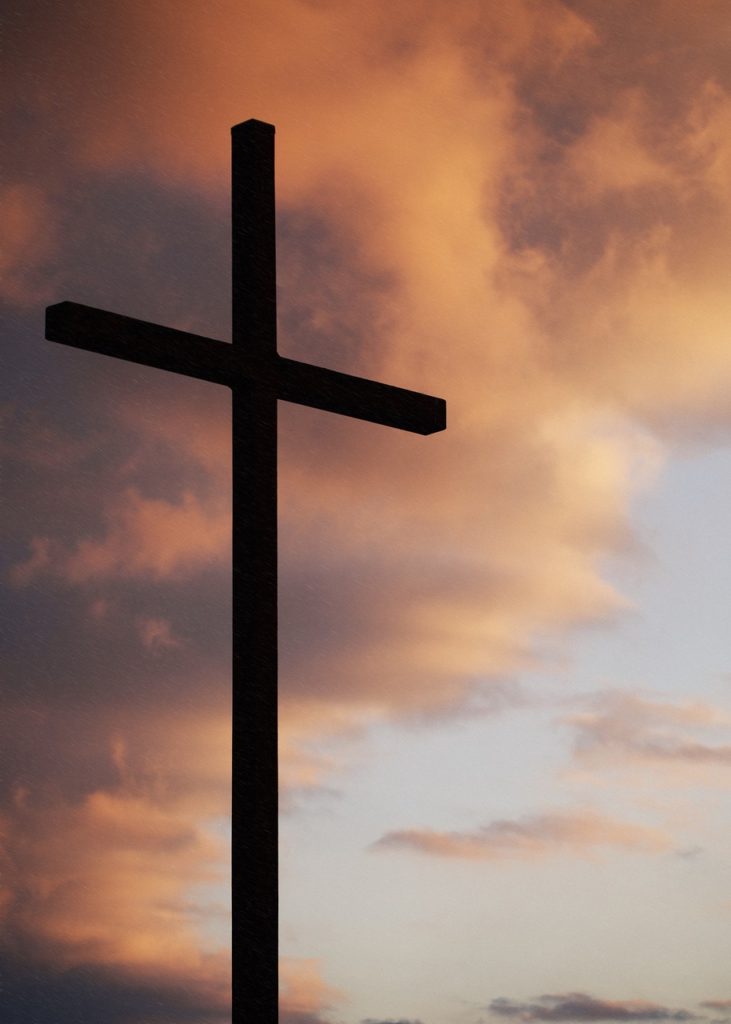Beliefs

1. There is one God – Father, Son, and Holy Spirit – a unity of three co-eternal Persons. God is immortal, all-powerful, all-knowing, above all, and ever present. He is infinite and beyond human comprehension, yet known through His self-revelation. He is forever worthy of worship, adoration, and service by the whole creation.
2. God, the eternal Father, is Creator, Source, Sustainer, and Sovereign of all creation. He is just and holy, merciful and gracious, slow to anger, and abounding in steadfast love and faithfulness. The qualities and power exhibited in the Son and the Holy Spirit are also revelations of the Father.
3. There is one Lord Jesus Christ, the Son of the Eternal Father, the one by whom God created all things, and by whom they do consist; He took on Himself the nature of the seed of Abraham for the redemption of our fallen race; He dwelt among men, full of grace and truth, lived our example, died our sacrifice, and was raised for our justification.
He ascended on high to be our only mediator in the sanctuary in Heaven, where, with His own blood, He makes atonement for our sins; which atonement so far from being made on the cross, which was by the offering of the sacrifice, is the very last portion of His work as priest according to the example of the Levitical priesthood, which foreshadowed and prefigured the ministry of our Lord in Heaven. Lev. 16; Heb. 8:4,5; 9:6,7.
4. God, the eternal Holy Spirit, was active with the Father and the Son in creation, incarnation, and redemption. He inspired the writers of Scripture. He filled Christ’s life with power. He draws and convicts human beings; and those who respond He renews and transforms into the image of God. Sent by the Father and the Son to be always with His children, He extends spiritual gifts to the church, empowers it to bear witness to Christ, and in harmony with the Scriptures leads into all truth.
5. The Holy Scriptures, of the Old and New Testaments, were given by inspiration of God. They contain a full revelation of His will to man, and are the only infallible rule of faith and practice.
6. Baptism is an ordinance of the Christian church, to follow faith and repentance, an ordinance by which we commemorate the resurrection of Christ, as by this act we show our faith in His burial and resurrection, and through that, of the resurrection of all the saints at the last day; and no other mode fitly represents these facts than that which the Scriptures prescribe, namely, immersion. 6:3-6; Col. 2:12.
7. The new birth comprises the entire change necessary to fit us for the kingdom of God, and consists of two parts: first, a moral change wrought by conversion and a Christian life; second, a physical change at the second coming of Christ, whereby, if dead, we are raised incorruptible, and if living, are changed to immortality in a moment, in the twinkling of an eye. John 3:3,5; Luke 20:36.
8. We believe prophecy is a part of God’s revelation to man; it is included in that scripture which is profitable for instruction, 2 Tim.3:16; it is designed for us and our children, Deut. 29:29; so far from being enshrouded in impenetrable mystery, it is that which especially constitutes the word of God, a lamp to our feet and a light to our path, Ps. 119:105; 2 Pet. 2:19; a blessing is pronounced upon those who study it, Rev. 1:1-3; consequently, it is to be understood by the people of God sufficiently to show them their position in the world’s history, and the special duties required at their hands.
9. The world’s history from specified dates in the past, the rise and fall of empires, and chronological succession of events down to the setting up of God’s everlasting kingdom, are outlined in numerous great chains of prophecy; these prophecies are now all fulfilled except the closing scenes.
10. God’s moral requirements are the same upon all people in all dispensations; these are summarily contained in the commandments spoken by Yahweh from Sinai, engraved on the tables of stone, and deposited in the ark, which was in consequence called the “ark of the covenant,” or testament. 10:33; Heb. 9:4; this law is immutable and perpetual, being a transcript of the tables deposited in the ark in the true sanctuary on high, which is also, for the same reason, called the ark of God’s testament; for under the sounding of the seventh trumpet we are told that “the temple of God was opened in Heaven, and there was seen in His temple the ark of His testament.” Rev. 11:19.
11. The fourth commandment of this law requires that we devote the seventh day of each week, commonly called Saturday, to abstinence from our own labor, and to the performance of sacred and religious duties; this is the only weekly Sabbath known to the Bible, being the day that was set apart before paradise was lost, Gen. 2:2,3; and which will be observed in paradise restored, Isa. 66:22,23.
The facts upon which the Sabbath institution is based confine it to the seventh day, as they are not true of any other day. The terms, Jewish Sabbath and Christian Sabbath as applied to the weekly rest-day, are names of human invention, unscriptural in fact and false in meaning.
12. As the natural or carnal heart is at enmity with God and His law, this enmity can be subdued only by a radical transformation of the affections, the exchange of unholy for holy principles; this transformation follows repentance and faith, is the special work of the Holy Spirit, and constitutes regeneration or conversion.
13. As all have violated the law of God, and cannot of themselves render obedience to His just requirements, we are dependent on Christ, first, for justification from our past offenses, and secondly, for grace whereby to render acceptable obedience to His holy law in time to come.
14. The Spirit of God manifest Himself in the church through certain gifts, enumerated especially in 2 Cor. 12 and Eph. 4; these gifts are not designed to supersede, or take the place of the Bible, which is sufficient to make us wise unto salvation, any more than the Bible can take the place of the Holy Spirit.
15. The grave, as expressed by the Hebrew “sheol” and the Greek “hades”, is a place of darkness in which there is no work, device, wisdom, or knowledge. 9:10.
16. The state to which we are reduced by death is one of silence, inactivity, and entire unconsciousness. 146:4; Eccl. 9:5,6; Dan. 12:2.
17. Out of this prison house of the grave of mankind are to be brought by a bodily resurrection: the righteous having part in the first resurrection, which takes place at the second advent of Christ, the wicked in the second resurrection, which takes place a thousand years thereafter. 20:4-6.
18. At the last trump, the righteous are to be changed in a moment, in the twinkling of an eye, and with the resurrected righteous are to be caught up to meet the Lord in the air, so forever to be with God.
19. These immortalized ones are then taken to Heaven, to the New Jerusalem, the Father’s house in which there are many mansions, John 14:1-3; where they reign with Christ a thousand years, judging the world and fallen angels, that is, apportioning the punishment to be executed upon them at the close of the one thousand years; Rev. 20.4; 1 Cor. 6:2,3.
During this time the earth lies in a desolate and chaotic condition, Jer. 4:20-27; described, as in the beginning by the Greek term abussos, bottomless pit (Septuagint of Genesis 1:2); here Satan is confined during the thousand years, Rev. 20:1,2. Here finally destroyed, Rev. 20:10; Mal. 4:1; the theater of the ruin he has wrought in the universe, being appropriately made for a time his gloomy prison house, and then the place of his final execution.
20. At the end of the thousand years, the Lord descends with His people and the New Jerusalem, Rev. 21:2; the wicked dead are raised and come up upon the surface of the yet unrenewed earth, and gather about the city, the camp of the saints, Rev. 20:9; and fire comes down from God out of Heaven and devours them. They are then consumed root and branch, Mal. 4:1; becoming as though they had not been. Obad. 15, 16.
In this everlasting destruction from the presence of the Lord, (2 Thes. 1:9) the wicked meet the everlasting punishment threatened against them, Matt. 25:46. This is the perdition of ungodly men, the fire which consumes them being the fire for which “the heavens and the earth which are now,” are kept in store, which shall melt even the elements with its intensity, and purge the earth from the deepest stains of the curse of sin. 2 Pet. 3:7-12.
21. New heavens and a new earth shall spring by the power of God from the ashes of the old, to be, with the New Jerusalem for its metropolis and capital, the eternal inheritance of the saints, the place where the righteous shall evermore dwell. 2 Pet. 3:13; Ps. 37:11,29; Matt. 5:5.
